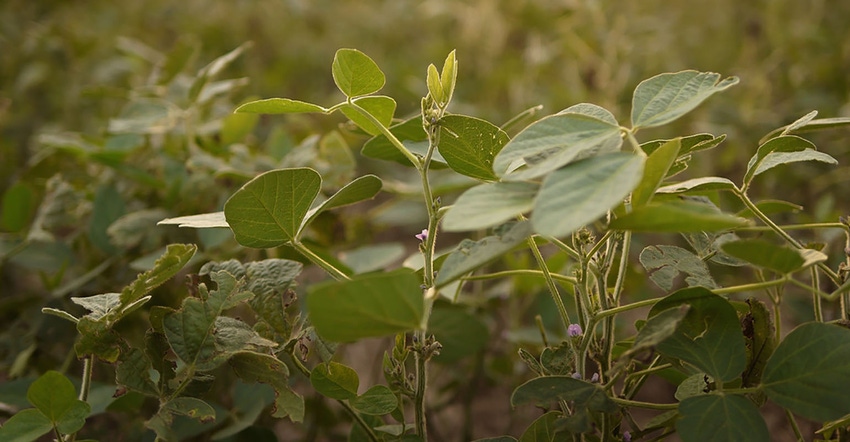November 27, 2020

The SCN Coalition wants soybean growers to understand the risks associated with higher population densities of soybean cyst nematode during hot and dry growing seasons, like many faced during 2020.
“Weather can have a tremendous impact on soybean cyst nematode reproduction,” said Iowa State University Nematologist Greg Tylka. In a video series titled “Let’s Talk Todes,” Tylka and North Dakota State University Plant Pathologist Sam Markell discuss how weather impacts SCN reproduction.
Other factors
Soybean growers with sandy soil or fields with sandy spots should consider testing those spots for SCN, he said, as researchers always see higher SCN reproduction in sandy soils.
“Soil pH and texture also impact SCN reproduction," Tylka said. "Our first inkling that SCN reproduced well in high pH soils came after 10 years of grid mapping on a central Iowa farm. That data revealed the highest pH spots in the fields had the highest nematode numbers. When you laid the soil pH and SCN maps side by side, they were in agreement nearly 85% of the time. At the time, it was counterintuitive because SCN is an obligate parasite, meaning it needs healthy plants to get the most nutrition. To have increased SCN reproduction on high pH soils where the plants are suffering from iron chlorosis was somewhat of a surprise."
Take the test
Coalition experts encourage soybean growers to test soil for SCN so they know their number and can start an active management strategy. State-specific advice is available by visiting TheSCNCoalition.com. Click on “Recommendations” and select your state in the “Coalition Experts” section.
What is the SCN Coalition?
The SCN Coalition is a public/checkoff/private partnership launched in 2018 to increase the number of growers who are actively managing soybean cyst nematode. The SCN Coalition includes university scientists in 28 states and Ontario, grower checkoff organizations such as the North Central Soybean Research Program, United Soybean Board and state soybean promotion boards, as well as partners in the private sector, including BASF, Bayer, Growmark, Nufarm, Pioneer (Corteva), Syngenta, Valent and Winfield United.
“SCN is too big of an issue for any one organization to tackle,” Markell said. “Our initial research showed a low percentage of soybean growers realize how much of a threat SCN still is to yields. The SCN Coalition brings the soybean industry together to disseminate information and tools for better pest management.”
Source: The SCN Coalition, which is solely responsible for the information provided and is wholly owned by the source. Informa Business Media and all its subsidiaries are not responsible for any of the content contained in this information asset.
You May Also Like




